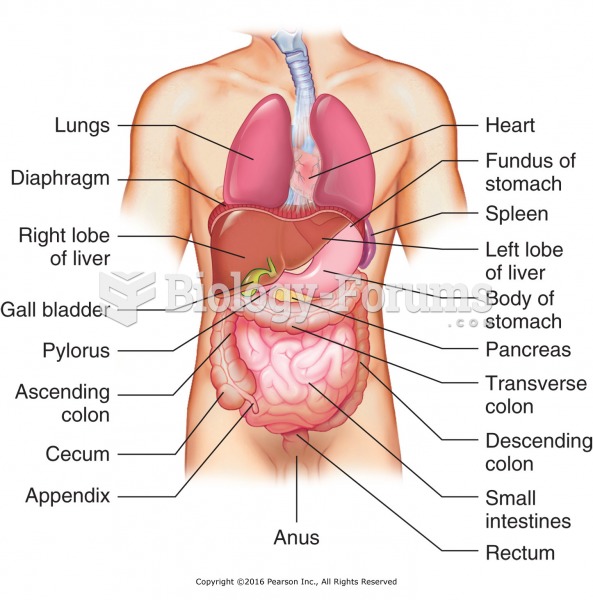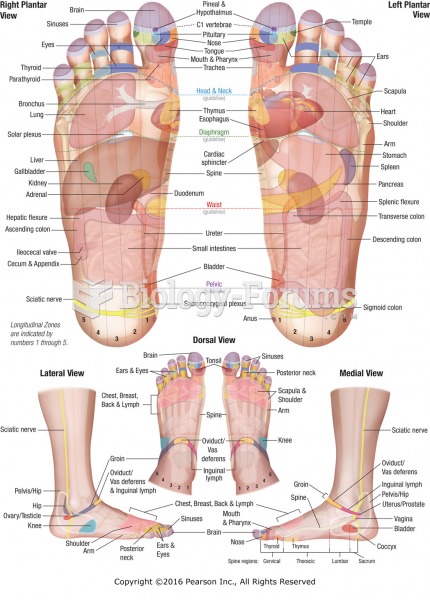|
|
|
During pregnancy, a woman is more likely to experience bleeding gums and nosebleeds caused by hormonal changes that increase blood flow to the mouth and nose.
Hypertension is a silent killer because it is deadly and has no significant early symptoms. The danger from hypertension is the extra load on the heart, which can lead to hypertensive heart disease and kidney damage. This occurs without any major symptoms until the high blood pressure becomes extreme. Regular blood pressure checks are an important method of catching hypertension before it can kill you.
Critical care patients are twice as likely to receive the wrong medication. Of these errors, 20% are life-threatening, and 42% require additional life-sustaining treatments.
Sperm cells are so tiny that 400 to 500 million (400,000,000–500,000,000) of them fit onto 1 tsp.
The first-known contraceptive was crocodile dung, used in Egypt in 2000 BC. Condoms were also reportedly used, made of animal bladders or intestines.
 The lymphatic system. Lymphatic vessels, major lymph nodes, and lymphatic organs. The direction of l
The lymphatic system. Lymphatic vessels, major lymph nodes, and lymphatic organs. The direction of l
 The bimetallic temperature sensor spring controls the amount of silicone that is allowed into the ...
The bimetallic temperature sensor spring controls the amount of silicone that is allowed into the ...





